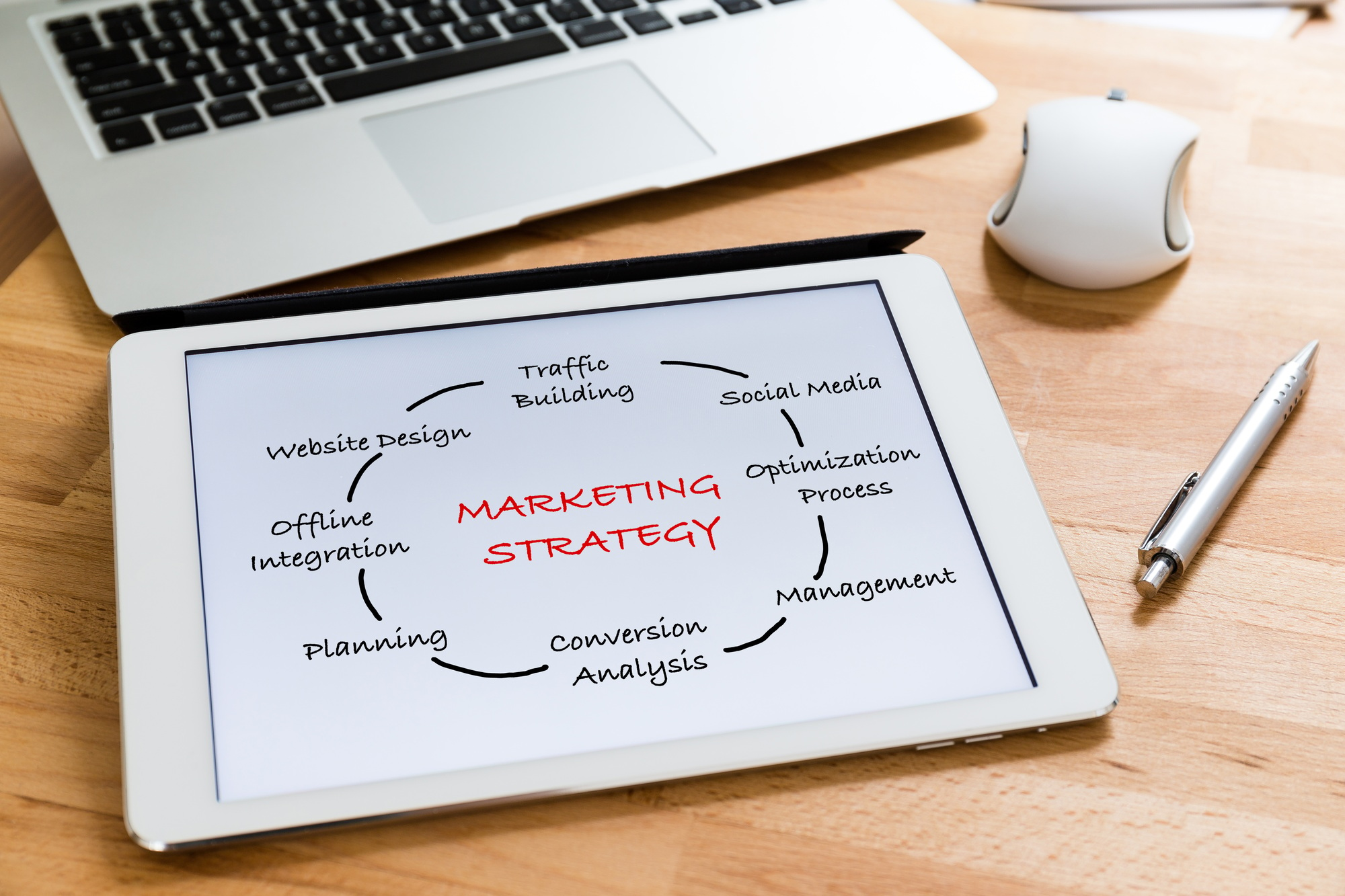Key Takeaways

- Effective Marketing is Essential: Successfully navigating today’s digital landscape requires innovative marketing strategies to stand out among competitors.
- Leverage Social Media: Utilize social media platforms for direct interaction with customers, showcasing products, and building brand loyalty through regular engagement.
- Data-Driven Insights: Analyze audience behavior and preferences to create targeted marketing campaigns that resonate, improving engagement and conversion rates.
- Traditional vs. Digital Strategies: A balanced approach that incorporates both traditional marketing (like event marketing and direct mail) and digital marketing (such as SEO and social media) is crucial for effective outreach.
- Understand Your Audience: Knowing your target audience’s demographics and preferences helps refine messaging and fosters stronger community connections.
- Measure Success with KPIs: Regularly track key performance indicators (KPIs) to assess the impact of marketing campaigns and adjust strategies for optimal effectiveness.
In today’s fast-paced digital landscape, effective marketing strategies are crucial for standing out and achieving success. With countless brands vying for attention, you need to harness innovative techniques that resonate with your audience. Whether you’re a small business owner or part of a larger corporation, understanding the right strategies can make all the difference.
From leveraging social media platforms to employing data-driven insights, the right approach can transform your marketing efforts. You’ll discover how to create compelling campaigns that not only capture interest but also drive conversions. Dive into the world of marketing strategies and unlock the potential to elevate your brand to new heights.
Overview of Marketing Strategies

Effective marketing strategies play a crucial role in attracting and retaining customers for small businesses. Utilizing local marketing techniques can help you engage with your community directly. Building awareness through word-of-mouth and neighborhood events fosters strong connections with potential clients.
Social media marketing stands out as an essential tool in your strategy. Platforms like Facebook, Instagram, and Twitter not only allow you to showcase your products or services but also enable direct interaction with your customers. Regularly posting updates and responding to inquiries builds trust and encourages brand loyalty.
Data-driven insights help refine your marketing efforts. Analyzing your audience’s behavior and preferences enables you to create targeted campaigns that resonate with them. Tracking metrics like engagement rates and conversion ratios provides clarity on what strategies work best.
Integrating these various marketing methods creates a cohesive approach. Engaging with your local audience through community events, combined with a strong social media presence, establishes your brand as a reliable option in the market. Effective marketing aligns with your business goals, driving growth and fostering customer relationships.
Types of Marketing Strategies

Understanding the various types of marketing strategies is vital for small businesses aiming to optimize their outreach. These strategies can be divided into traditional and digital methods.
Traditional Marketing Strategies
Traditional marketing encompasses techniques that have stood the test of time, often utilizing offline or hybrid approaches to connect with audiences.
- Outdoor Marketing: This includes public displays of advertising like billboards and posters that capture attention in high-traffic areas.
- Poster Ads: Displaying visual advertisements in malls, streets, and other locations ensures your products or services gain visibility among potential customers.
- Event Marketing: Hosting or participating in events, trade shows, and conferences provides a platform to promote your business directly to interested clients.
- Cold Calls: Making direct telephone calls to potential customers allows you to pitch products or services personally and address inquiries in real-time.
- Direct Mail: Sending promotional materials like brochures and catalogs directly to customers’ mailboxes creates a tangible connection with your audience.
Digital Marketing Strategies
Digital marketing leverages online platforms to reach a wider audience, making it essential for small businesses in today’s marketplace.
- Social Media Marketing: Utilizing platforms like Facebook, Instagram, and Twitter helps you engage with customers, showcase products, and build brand loyalty effectively.
- Search Engine Optimization (SEO): Optimizing your website for search engines increases visibility, driving organic traffic to your site.
- Email Marketing: Sending targeted email campaigns allows you to nurture leads and maintain communication with existing customers, promoting sales and offers.
- Content Marketing: Creating valuable, relevant content helps establish your business as an authority in your industry while attracting and retaining customers.
- Pay-Per-Click Advertising (PPC): Running targeted ads on search engines or social media platforms can boost visibility and drive immediate traffic to your website.
By understanding both traditional and digital marketing strategies, you can effectively reach your target audience, especially in local marketing efforts, and elevate your small business.
Developing an Effective Marketing Strategy

Effective marketing strategies are essential for small businesses aiming to connect with their target audience and drive growth. By focusing on key components, you can create a well-rounded approach to boost your local marketing efforts.
Understanding Your Target Audience
Understanding your target audience is vital for developing effective marketing strategies. You need to gather insights into customer preferences and behaviors through surveys, focus groups, and online tools. Identify customer demographics, interests, and pain points. When you know your audience, you create tailored messaging and marketing campaigns that resonate. For example, small businesses that engage in local marketing often benefit from personalizing their outreach to reflect community values and preferences.
Setting Clear Goals and Objectives
Setting clear goals and objectives streamlines your marketing efforts. Define what you want to achieve, such as increasing brand awareness or boosting sales by a specific percentage. Use the SMART criteria—Specific, Measurable, Achievable, Relevant, and Time-bound—to outline your goals. For instance, aiming for a 20% increase in social media engagement within six months provides a concrete target. Clear objectives guide your strategy, allowing you to measure success and adjust your tactics as needed to maximize your impact on the local market.
Measuring the Success of Marketing Strategies

Measuring the success of your marketing strategies involves using specific metrics that provide insights into campaign performance. Implementing these measures allows you to refine your approach and achieve your business objectives.
Key Performance Indicators (KPIs)
KPIs serve as essential metrics to assess the effectiveness of your marketing campaigns. Focusing on financial and acquisition KPIs can help you evaluate success accurately.
Financial KPIs
- Return on Investment (ROI): Calculates the profit earned compared to the marketing campaign cost. For instance, if your campaign expenses amount to $1,000 and it generates $5,000 in sales, your ROI stands at 400%.
- Cost Per Acquisition (CPA): Represents the expense incurred to gain a single customer through your marketing efforts.
- Customer Acquisition Cost (CAC): Indicates the total cost involved in converting a prospective customer into an actual client.
Acquisition KPIs
- Conversion Rate: Reflects the percentage of visitors completing a desired action, such as making a purchase or signing up for a newsletter.
- Click-Through Rate (CTR): Engages your audience by showcasing the percentage of users clicking on a link after seeing your advertisement.
Tools for Analysis and Measurement
Utilizing various tools helps you track these KPIs efficiently. Consider these options:
- Google Analytics: Offers comprehensive data on website performance, helping you understand user behavior and conversion patterns.
- Social Media Insights: Platforms like Facebook and Instagram provide analytics on post engagement and audience demographics, crucial for refining your local marketing strategies.
- Email Marketing Software: Tools like Mailchimp or Constant Contact track open rates, click rates, and conversions to assess the effectiveness of your email campaigns.
Using these metrics and tools empowers small businesses to measure their marketing effectiveness accurately, enabling continued growth and improved customer relations.
Trends in Marketing Strategies

- Personalization and Customer Experience: Personalization serves as a key asset for small businesses, driving growth by making customers feel understood as individuals. Brands excelling in personalized marketing often exceed revenue goals and enjoy higher customer loyalty. Creating unified, omnichannel experiences enhances your ability to build one-to-one relationships. By integrating digital and physical interactions, you strengthen engagement.
- Generative AI and Automation: Generative AI is becoming essential in small business marketing strategies. You can use AI for content creation and brainstorming campaigns, which streamlines overall efficiency. The potential of AI extends to automated A/B testing and AI influencers, simplifying campaign management. By leveraging these tools, you enhance your marketing efforts while saving time and resources.
These trends emphasize the need to remain adaptable and innovative in your marketing strategies to effectively connect with your audience and drive results.
Conclusion

Embracing effective marketing strategies is essential for your business’s success in today’s dynamic landscape. By combining traditional and digital methods you can create a powerful presence that resonates with your target audience.
Utilizing social media and data-driven insights not only enhances your campaigns but also helps build lasting relationships with customers. Remember to focus on personalization and customer experience to foster loyalty and drive growth.
Staying adaptable and open to emerging trends will ensure your marketing efforts remain relevant and impactful. Prioritize measuring your success through key metrics to refine your strategies and maximize your results. With the right approach your business can thrive and connect meaningfully with your audience.
Frequently Asked Questions

What are effective marketing strategies for small businesses?
Effective marketing strategies for small businesses include leveraging social media, local marketing, and community events. Additionally, using data-driven insights to understand customer behavior helps create personalized campaigns that resonate with audiences and drive engagement.
How can social media benefit my marketing efforts?
Social media allows businesses to showcase products and directly interact with customers. It’s essential for building trust and brand loyalty, enabling businesses to reach a wider audience and engage effectively through content sharing and community building.
What is the role of data-driven insights in marketing?
Data-driven insights help businesses analyze audience behavior, enabling them to refine their marketing efforts. By understanding customer preferences, businesses can create targeted campaigns that align with their goals, improving conversion rates and customer retention.
What is the difference between traditional and digital marketing?
Traditional marketing includes offline methods like outdoor advertising, cold calls, and direct mail, while digital marketing encompasses online strategies such as social media, SEO, email marketing, and PPC advertising. Both methods are important for effectively reaching audiences.
How do I measure the success of my marketing strategies?
Success can be measured using Key Performance Indicators (KPIs) such as Return on Investment (ROI), Conversion Rate, and Click-Through Rate (CTR). Tools like Google Analytics and social media insights help track these metrics effectively.
What are the latest trends in marketing strategies?
Emerging trends include personalization and enhancing customer experience. Personalization fosters deeper connections and loyalty, while integrating digital and physical interactions strengthens engagement. Generative AI and automation streamline marketing processes, improving efficiency and resource management.
How can I set clear marketing goals?
Using the SMART criteria (Specific, Measurable, Achievable, Relevant, Time-bound) helps in setting clear marketing goals. Defining specific targets, such as increasing brand awareness or social media engagement, enables businesses to measure success and adjust strategies accordingly.
Image Via Envato: wasant1, donut3771, chartchaik1, thanmano, NomadSoul1, AmnajKhetsamtip, leungchopan, LightFieldStudios



